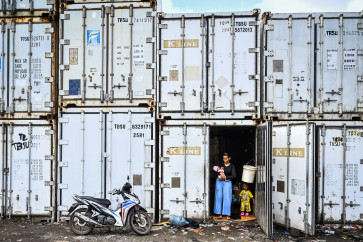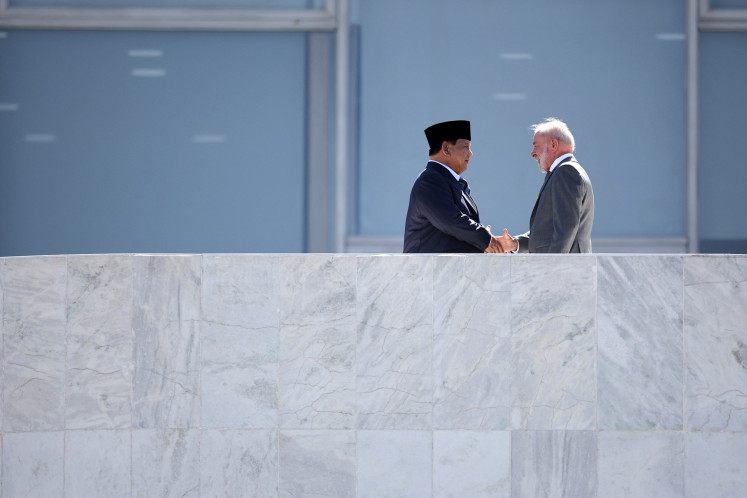Popular Reads
Top Results
Can't find what you're looking for?
View all search resultsPopular Reads
Top Results
Can't find what you're looking for?
View all search resultsJapan seeks Indonesia’s help to solve labor crisis
The number of Indonesian workers in the Japanese construction sector is expected to surpass the number of Vietnamese workers in the coming years, a Japanese construction association has said.
Change text size
Gift Premium Articles
to Anyone
T
he Japan Association for Construction Human Resources (JAC) has expressed hope for assistance from neighboring countries, including Indonesia, to help address Japan’s labor crunch.
"The elderly population in Japan is larger than the younger population, meaning there are very few young workers, so we greatly hope for assistance with manpower from neighboring countries, particularly from Indonesia," JAC project head Naoya Shikano said in Depok, West Java, on Wednesday, as reported by tempo.co.
During the Japanese Construction Workforce Socialization event at the State Polytechnic of Jakarta, Naoya said Japan was actively seeking to remedy its labor shortage.
The country’s efforts, he said, included organizing socialization programs to introduce internship opportunities and the Special Skill Worker (SSW) program for foreign workers, along with the associated systems and regulations.
The country was also seeking to promote working conditions in Japan, particularly in the construction sector, to foreign workers.
"Apparently, there are already many Indonesians working in the construction sector in Japan, and the number will continue to grow every year," Naoya said.
Currently, foreign workers in Japan, particularly in the construction sector, mostly come from Vietnam. However, in the coming years, the number of Indonesian workers is expected to surpass the number of Vietnamese workers.
According to an assessment of company owners in Japan, Indonesian workers are considered to have very strong, kind and cheerful characters.
JAC is a legal organization responsible for admitting foreign workers on SSW visas. In addition to providing training, conducting skill exams and arranging job placements, JAC also offers guidance and ensures that companies employing foreign workers maintain a supportive environment.
The socialization event by JAC was attended by dozens of teachers from some 60 vocational high schools in the Tangerang, Jakarta and Depok areas.
One of the attendants, Gutser Siburian, a teacher at SMK Tunas Harapan in West Jakarta, hoped that the dissemination of information about such programs would continue, as he believed they could make good use of the skills of students at his school.
"We already have alumni working in Japan. Our school plans to introduce Japanese language lessons to support and enhance the skills of those who will work in Japan," Gutser said.









